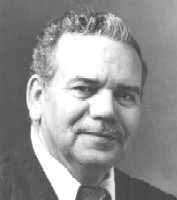Friday, March 16, 2007
Read for pleasure, not duty
In his book On Writing, Stephen King says:
“If you want to be a writer, you must do two things above all others: read a lot and write a lot. There’s no way around these two things that I’m aware of, no shortcuts.
“I’m a slow reader, but I usually get through seventy or eighty books a year, mostly fiction.”
Slow reader? Maybe, but his yearly total is pretty respectable.
Mr. King’s advice is dead on, but it is probably wasted on people who don’t already have the reading habit. These are people who tell you they love to read, but they just don’t have time. They are going to read more when they get the time. No, they’re not. They might as well quit kidding themselves.
Some of them might develop the reading habit if they thought of reading as a pleasure, which it is, and not as a duty.
Read what you enjoy, or read because you want to learn something that interests you. Don’t worry about reading what you think you should read, or what other people think you should read.
Don’t feel guilty if you don’t enjoy books that are supposed to be good for you. If you have to force yourself to read, you won’t stick with it long and you won’t get much out of it.
But sample all sorts of writing. Before dismissing a book as boring, give it a chance. Read a page or two or three. Good writing has a way of drawing you in even when the subject never interested you before.
If you read for pleasure, read a lot, you will soak up writing lessons without trying. After a while, though, you will find yourself noticing the lessons—beginning to see how the writer achieves the effects that make the story work. This won’t lessen your pleasure; it will increase it.
Many books have more to give than you can get from one reading. The classic example is Mark Twain’s Huckleberry Finn. An adolescent can read it as an adventure story. The same reader can revisit the book with a more mature understanding and discover that it is not only a great adventure story, but also is a commentary on slavery and human nature.
A lesser-known example is The Ballad of the Flim-Flam Man by Guy Owen. It’s a novel about a down-at-the-heels grifter and a young rube who ramble across North Carolina working one small-time swindle after another. You can read it as a rollicking comedy, which it is. But if you read it again, the novel will take you deeper and deeper until the laughter becomes mixed with sorrow and sympathy for the frailties of human beings. (You know, don’t you, that sorrow and pain are the wellsprings of much of our humor?)
One class of books is especially worth reading again and again: guidebooks for writers. A writer can read these for pleasure as well as for the learning. If a book on writing well isn’t pleasurable reading, it isn’t likely that the author has much to teach you.
You can return to a book such as The Careful Writer by Theodore Bernstein or On Writing Well by William Zinsser and gain something new every time. Here are some other writing books that reward you every time you go back to them: Stein on Writing, by Sol Stein; The Book on Writing, by Paula LaRocque; The Word, by Rene J. Cappon; The Writer’s Art, by James J. Kilpatrick.
Some writers may scorn the recommendation to read books on the craft. In The Language of the Night, Ursula K. LeGuin says she doesn’t read such books. I wouldn’t presume to argue the point with her. Her success—she is one of our most honored writers of science fiction and fantasy—speaks for itself.
Most of us, though, including me, aren’t as smart as she is. Books on the craft won’t infuse creativity or make you an original thinker. They can, however, help you learn the tools and techniques you need and save you much effort. It seems to me that so many writers struggle to discover principles that were discovered long ago—as far back as Aristotle. Some of that struggle is unnecessary.
Labels: Books, Reading, Writing
